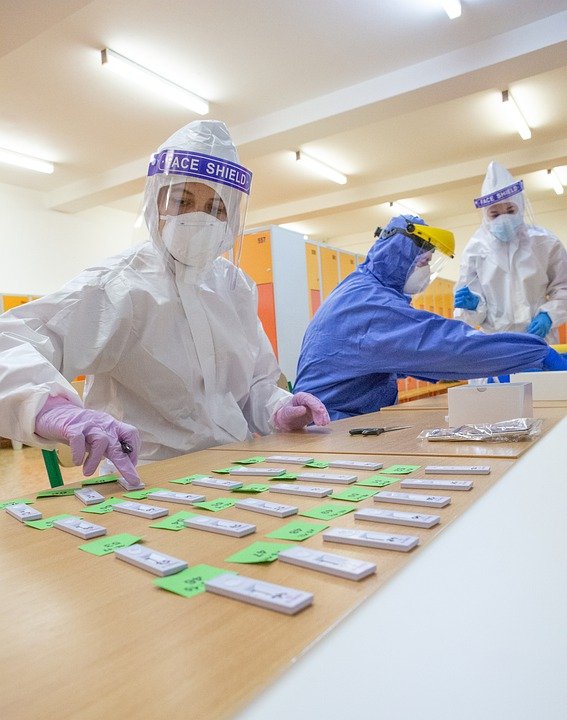Hungary is set to begin testing certain essential workers for coronavirus on a regular basis from Friday, Gergely Gulyás, the head of the Prime Minister’s Office has said, adding that the staff of social care homes will be the first to be tested.
The government last week decided that health-care workers, teachers and staff members of social institutions will be tested on a regular basis, determined by the operative board responsible for handling the epidemic, Gulyás told a regular press briefing. Testing will be voluntary, he said, adding that testing is scheduled to get under way in schools, kindergartens, creches and health-care institutions next Monday. The government offices will be instrumental in organising the testing of 191,000 people in 15,000 venues, with the testing teams always including a medical student, Gulyás said.
Regarding the coronavirus vaccine, Gulyás said Hungary has contracted altogether 12 million doses, costing 36 billion forints (EUR 99.6m), from three manufacturers. Fully 3,270,000 doses are contracted from British AstraZeneca, 4,360,000 doses from US company Janssen and 4,439,000 doses from Pfizer in addition to potential Chinese and Russian vaccine purchases now under negotiation, he said. The government has a duty to procure any vaccine that has been duly tested and proven to be effective as quickly as possible, and so it is in talks with “every entity” potentially able to provide it, including the EU, Israel, the US, China and Russia, he said.
Gulyás thanked health-care staff for their efforts, noting that the death-to-infection ratio has declined since the spring. The health-care system is ready to handle growing case numbers, he said. Gulyás said the number of new infections was increasing along the Austrian border, and he asked commuters to exercise extreme caution. The government will assess the effects of the latest restrictions on Wednesday, and decide whether new measures or a prolongation of the recent ones are necessary, he said.
Gulyás said there were 580 coronavirus patients in intensive care. Hungarian hospitals have around 1,700 intensive care beds, he said, adding that this number could be increased if necessary. Concerning the official number of Covid tests carried out, Gulyás said the numbers on the government’s coronavirus website did not yet include antigen tests for technical reasons.
Asked about the timeframe of the current restrictions and whether the government had any plans to tighten them, Gulyás said the government had not discussed the implementation of tougher measures. The cabinet will review the situation and the effectiveness of the restrictions currently in place at a meeting next Wednesday, he said. “In a situation like this, no responsible government can decide on measures that would need to be taken in 2-3 weeks’ or a month’s time.” The government is ready to tighten restrictions if necessary, he added.
Asked about the government’s reasoning behind its decision to submit a constitutional amendment proposal while the special legal order is in effect, Gulyás said: “Despite the epidemic, everyone has to work and even lawmakers are expected to work in line with the normal legislative agenda.”
Gulyás was also asked whether there were any plans for primary schools to transition to online classes and whether university students studying to become teachers would be hired to ease the load on the education system. He said the government was hoping to avoid having to switch primary schools to digital classes but would do so if it became necessary. He added that there were enough teachers in the sector.
Concerning projections on when the epidemic was expected to peak, Gulyás said experts forecast case numbers cresting around December or January.
He said there were currently 7-8 coronavirus vaccines undergoing trials. Hungary is working to obtain “even the very first one” that becomes available so that it can begin carrying out its vaccination plan, he said, adding that inoculations would be voluntary and be made available to everyone free of charge.
In response to the issue of adoptions by same-sex couples, Gulyas noted that a law on same-sex civil unions passed by the previous Socialist-liberal government in 2009 prohibiting adoption by same-sex couples has been kept unchanged by the Fidesz-led government.
hungarymatters.hu
pixabay

















